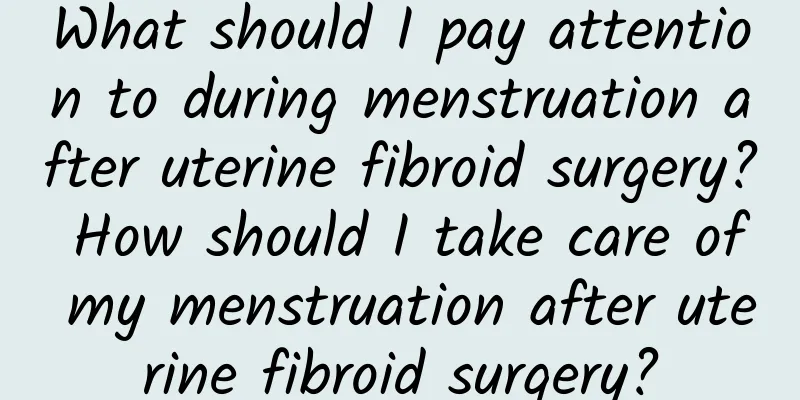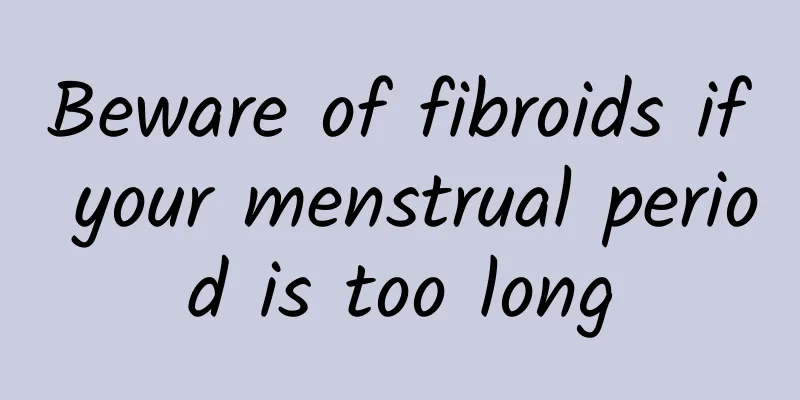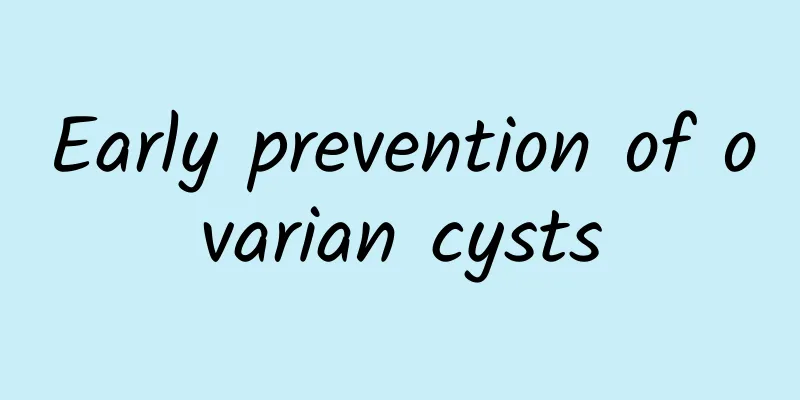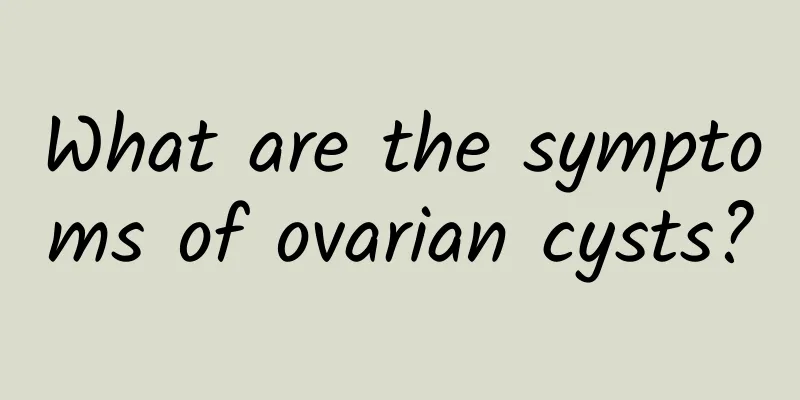What should I pay attention to during menstruation after uterine fibroid surgery? How should I take care of my menstruation after uterine fibroid surgery?

|
Many young female patients will see uterine fibroids, and many patients with uterine fibroids will have multiple complications. So, what about menstruation after uterine fibroid surgery? Menstruation is also called the menstrual cycle. It is a physiological cycle that occurs in some fertile women and other human animals. Other mammals experience emotional cycles. In women of childbearing age and female animals, the endometrium thickens independently, blood vessels proliferate, glands grow and secrete, and the endometrium collapses and falls off every month or so, accompanied by cyclical changes in bleeding. This cyclical vaginal bleeding or uterine bleeding is called menstruation. Most uterine fibroids are benign. However, because uterine fibroids tend to occur frequently, in women of childbearing age, fibroids may gradually increase in size with age, and myomectomy may also recur. The rate of malignant change (i.e., sarcoma change) of uterine fibroids is very low, about 0.4-0.8%. However, we still need to be alert to the risk of malignant change. If there is abnormal vaginal discharge or discharge, uterine fibroids increase significantly in a short period of time, or uterine fibroids continue to increase after menopause, we need to be alert to the possibility of malignant change. After uterine fibroid surgery, the first meal of menstruation should not be too early. Generally speaking, patients should eat nutritious and easily digestible food 6 hours after surgery. The diet of patients after uterine fibroid surgery should not be too fine. After uterine fibroid surgery, nutrition must be comprehensive. High-protein, high-vitamin, low-fat and low-salt diet, spicy, fatty, barbecued, pickled and other foods should be avoided as much as possible. Eating at regular times and in regular amounts, maintaining proper nutrition and a regular lifestyle are key factors in helping with recovery after surgery. |
Recommend
There is a consensus! Junk food promotion to children will be banned
High-salt, high-calorie foods are nicknamed "...
TCM Diagnosis of Pelvic Peritonitis
Pelvic peritonitis is a common gynecological dise...
How to identify vaginitis as a patient
There are many ways to identify vaginitis. Doctor...
The harm and treatment methods of female amenorrhea
Women themselves do not realize the harm of abnor...
What is the cause of left ovarian cyst and what is the best medicine
Ovarian cysts are often caused by women's irr...
Will menopausal discomfort disappear? May bring 5 major crises! Doctor: Increased incidence of obesity, cardiovascular disease, gynecological cancer, etc.
Women between the ages of 40 and 54 have to face ...
Will uterine cavity separation disappear gradually in early pregnancy?
The occurrence of uterine separation in early pre...
Differential diagnosis of chronic pelvic peritonitis
Don't be careless if you have pelvic peritoni...
Not all PID symptoms are the same!
Do you know the symptoms of pelvic inflammatory d...
What causes cervical hypertrophy in women?
Cervical hypertrophy in women may be caused by ce...
What are the symptoms of Bartholinitis?
The Bartholin's glands are located below the ...
Multiple sexual partners caused her to suffer from pelvic inflammatory disease
Lily is a beautiful girl, but she doesn't lik...
What are the types of painless abortion?
Painless abortion has been increasingly used in r...
How much is the cost of uterine fibroid surgery? What are the factors that affect the cost of uterine fibroid surgery?
Recently, many people are paying attention to the...
What diseases can be caused by unclean sex? Prevention methods for common gynecological diseases
Vaginitis Every woman has several genital tract i...









